Greek Easter is the most important religious and cultural celebration in Greece. In 2026, Greek Easter is celebrated on Sunday 12th of April. Here are some of the unique Greek Orthodox Easter traditions and customs.
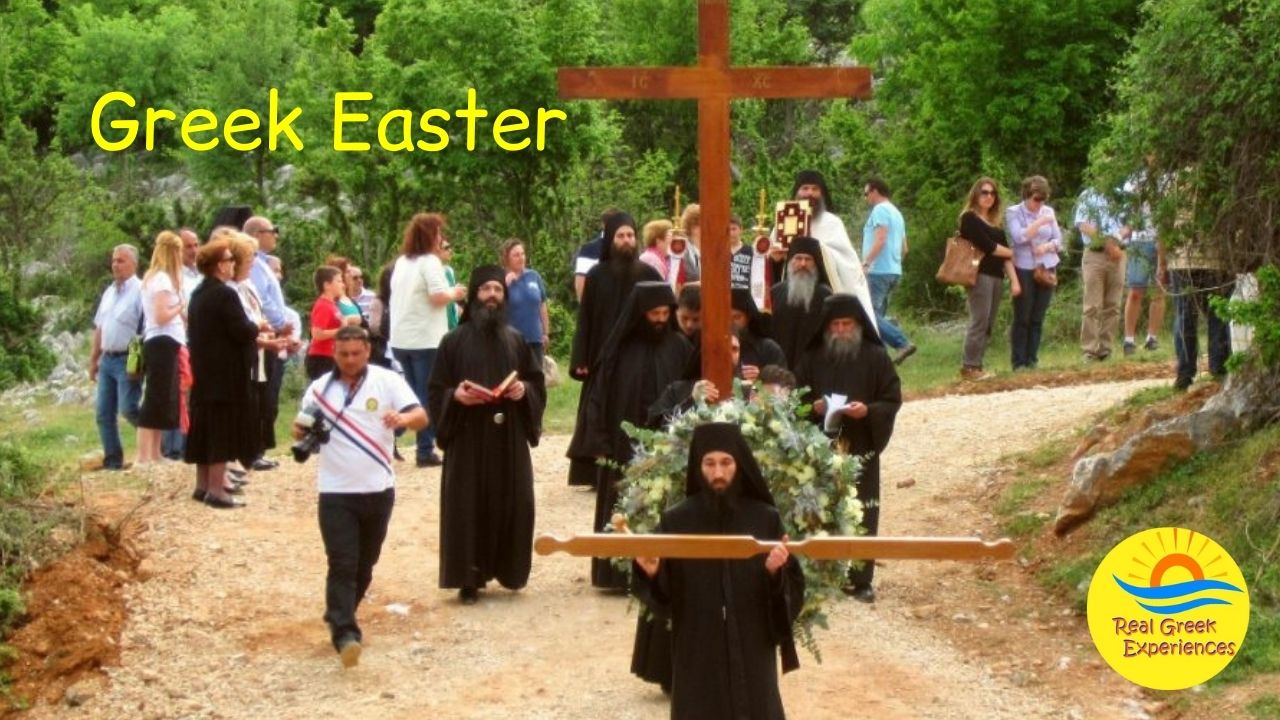
Greek Orthodox Easter Traditions
Greek Easter, also known as Greek Orthodox Easter, is the most significant Holy Day in Greece. The Greek Orthodox Church celebrates the resurrection of Jesus Christ, which coincides with the arrival of spring, when everything is reborn.
Apart from its religious significance, Easter is a great opportunity for Greeks to rejoice, eat, drink and socialize with family and friends. People visiting Greece during Greek Orthodox Easter can observe and participate in our unique traditions.
I’m Vanessa from Athens, and I find Greek Easter a very unique celebration. So, if you want to get a little closer to the Greek culture, start planning your next trip to experience Easter in Greece!

Greece Easter Traditions
Many of the Easter traditions in Greece are related to church services. There are several liturgies throughout Lent, the seven-week period before Easter, and during the Holy Week. As an example, the Unction takes place on Holy Wednesday.
Other Greek Easter traditions have to do with food. During Lent, many foods are not allowed. On Holy Saturday and Easter Day, Greeks prepare a few special dishes based on meat.
These traditions are a huge part of the Greek culture. Many Greeks follow them – even people who are non-religious. Here is what to expect if you visit Greece in Easter.
1. Fasting during Lent
The seven-week period before Easter is called Lent, or Sarakosti in Greek. During that time, some Orthodox Christians go on a special fast, which we call nistia, in order to cleanse themselves in preparation for Easter.
Many people only fast during the Holy Week. This is the last week of Lent, between Palm Sunday and Holy Saturday. In Greek, we call it Megali Evdomada, which literally translates to Grand Week.
Greek fasting is similar to a vegan diet, with the addition of seafood, and sometimes excluding olive oil and wine. During Lent, many restaurants serve special dishes, which we call nistisima.
You can find many Lent dishes in this article on Greek vegan food.
Lent begins on Clean Monday, also known as Ash Monday. Greeks celebrate this public holiday with feasts of Lent foods and flying kites. Certain days, like the Greek Independence / Annunciation Day, call for the consumption of fish.
In fact, according to the Greek Orthodox religion, people are supposed to give up “all pleasures of the flesh” during Lent. This includes much more than food, but I’ll leave the rest to your imagination!

2. Dyeing the Red Easter eggs on Holy Thursday
In Greece, Easter eggs are not chocolate eggs. They are real chicken eggs, but not the usual ones – they are first hard boiled, and then dyed red.
Traditionally, women used to dye the eggs on Holy Thursday, using a colorant produced from onion peel. This gave the eggs a deep red color, which is symbolic of the blood of Jesus Christ.
Nowadays, we normally buy special red dye to paint the eggs. Ready-made red eggs are also available at supermarkets and street markets.

Some people paint the eggs in different colors, or decorate them using tree leaf patterns or stickers. My friend NenaM created the fancy ones above!
On Easter Sunday, people play a traditional game of cracking the red eggs. More on this, later.
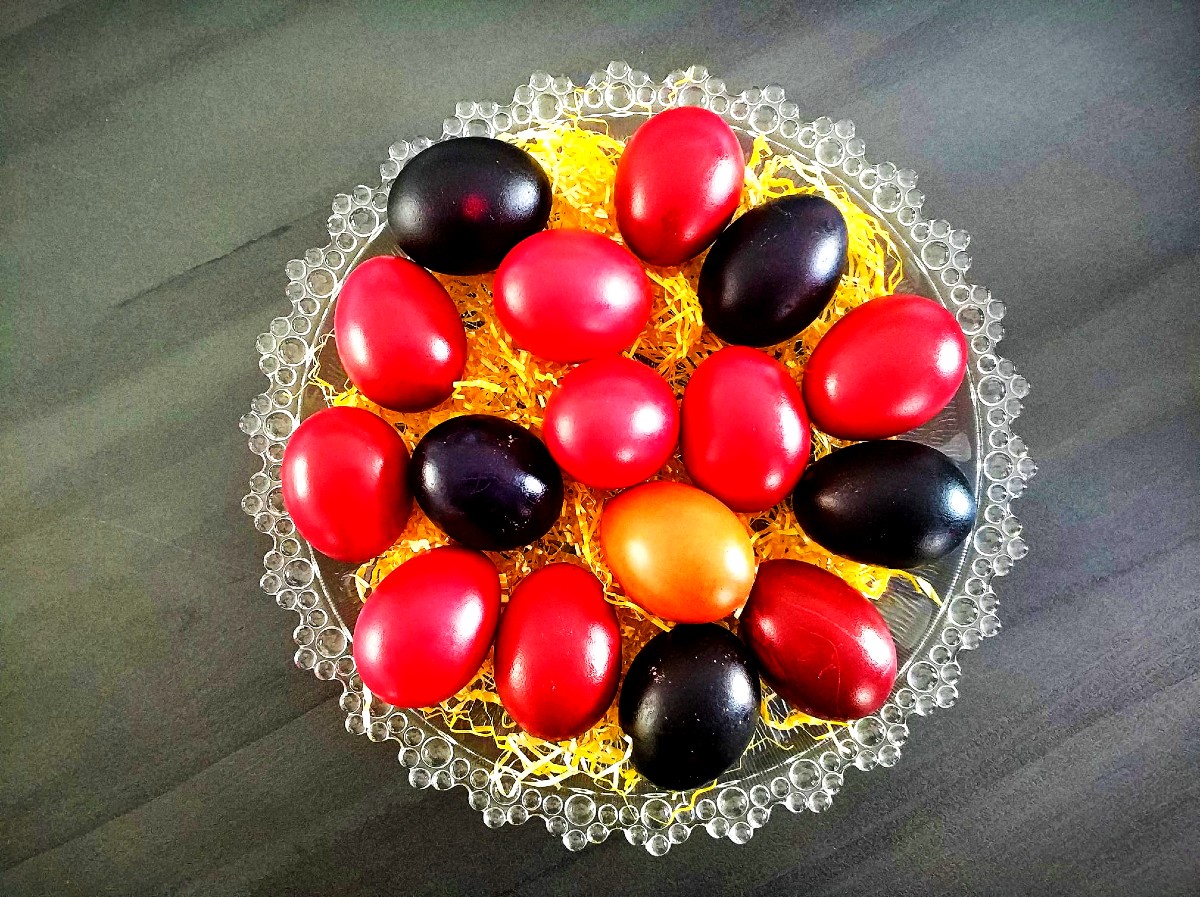
3. Baking Easter sweets – Tsoureki and koulourakia
On Holy Thursday, women traditionally prepare two types of Easter sweets – tsoureki and koulourakia.
The tsoureki is a type of traditional sweet bread, with a fluffy, chewy texture. It contains flour, butter, eggs, sugar, milk and spices. Making a tsoureki is an important Easter tradition in Greece. Here’s my dad making one!!!
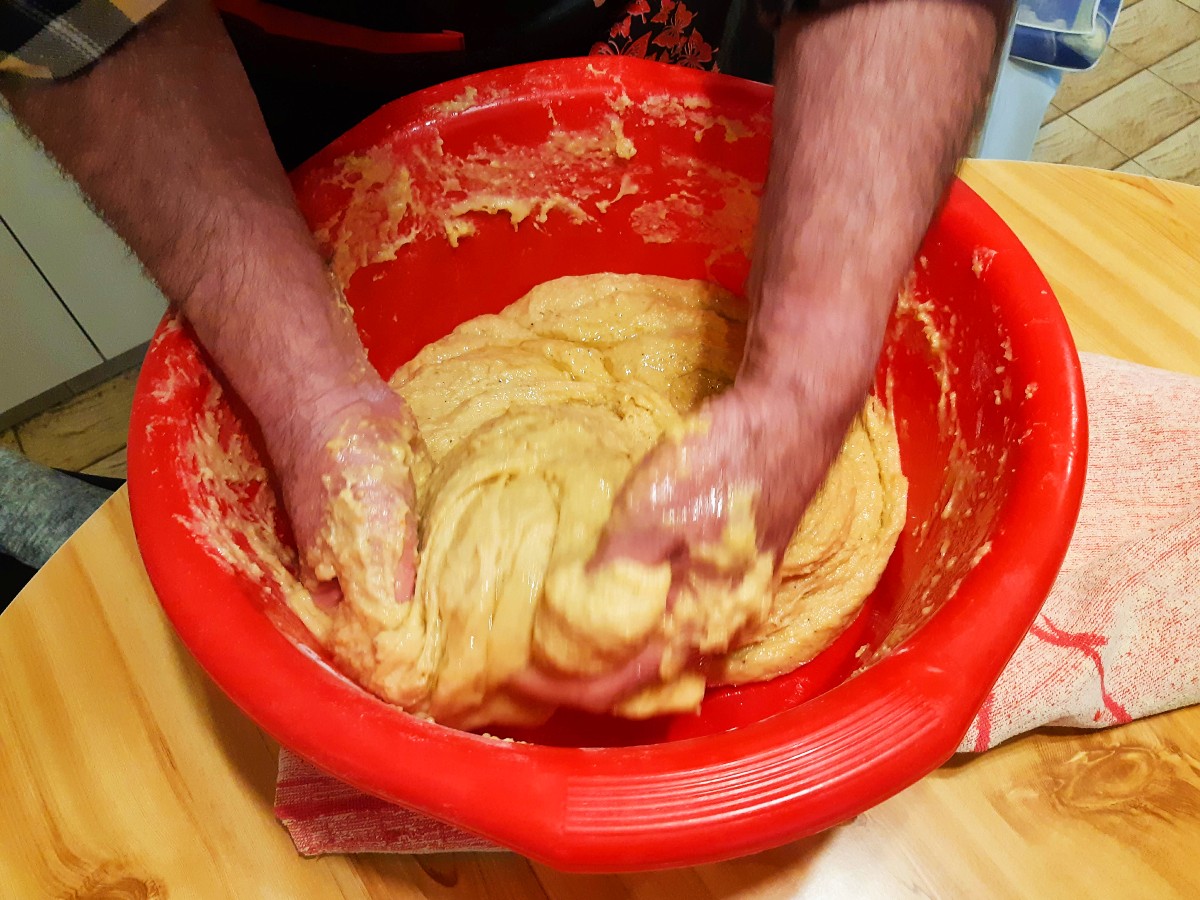
It takes a long time to make the Greek Easter bread, but it’s a fun procedure, and children are normally happy to participate. We often decorate each tsoureki with a red egg.

If you are here for a vacation, ask the locals where to get the best tsoureki and they will point out their favourite bakery. If they make their own, they will definitely treat you to some. Try it plain, with orange marmalade or with a glass of milk.
As for koulourakia, they are generic crunchy cookies. They typically contain butter, eggs, sugar, flour and spices, and come in different shapes. They go very well with Greek coffee, or milk.
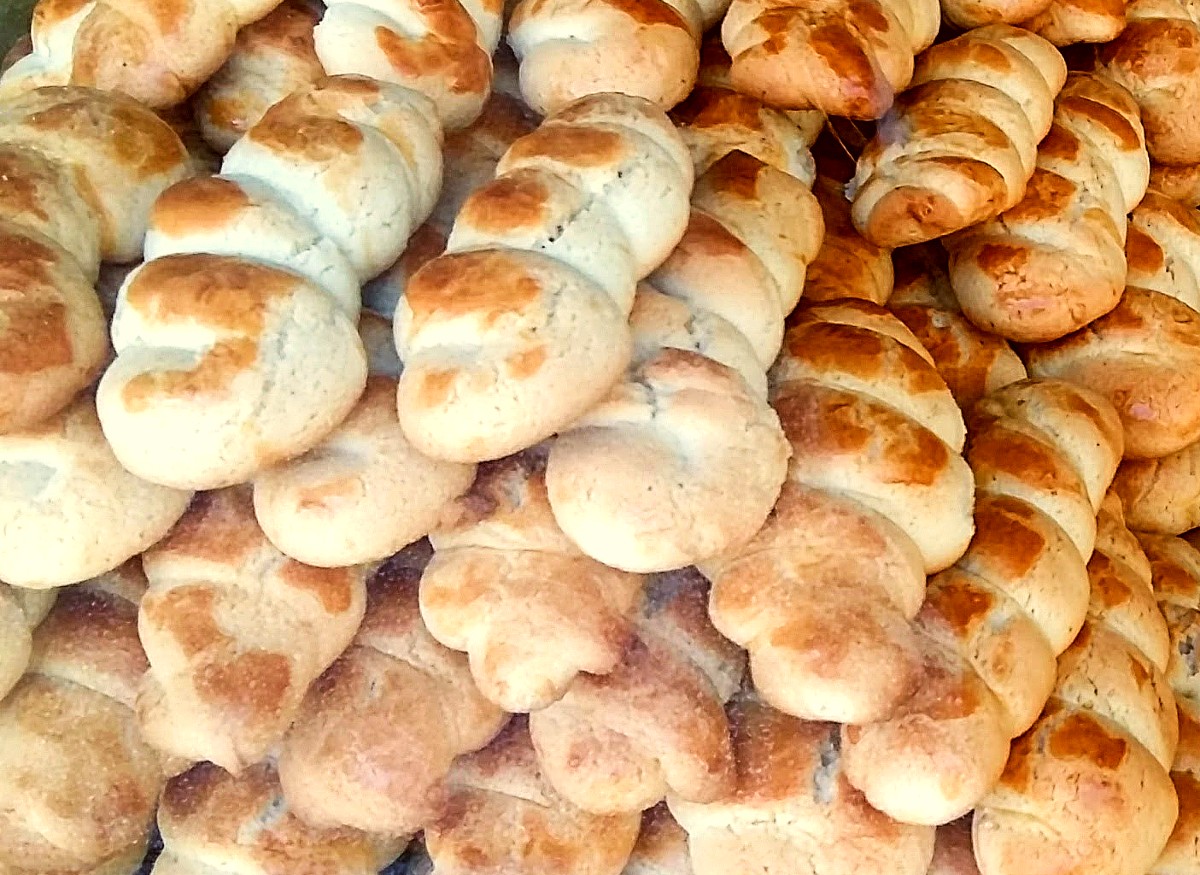
4. The Epitafios procession on Good Friday
On the evening of Good Friday, churches in Greece mourn the death of Jesus Christ, and organize an Epitafios procession.
The Epitafios is a wooden construction covered with a piece of precious cloth, often adorned in gold and silver. It depicts the dead body of Jesus Christ, and is usually decorated with flower petals.
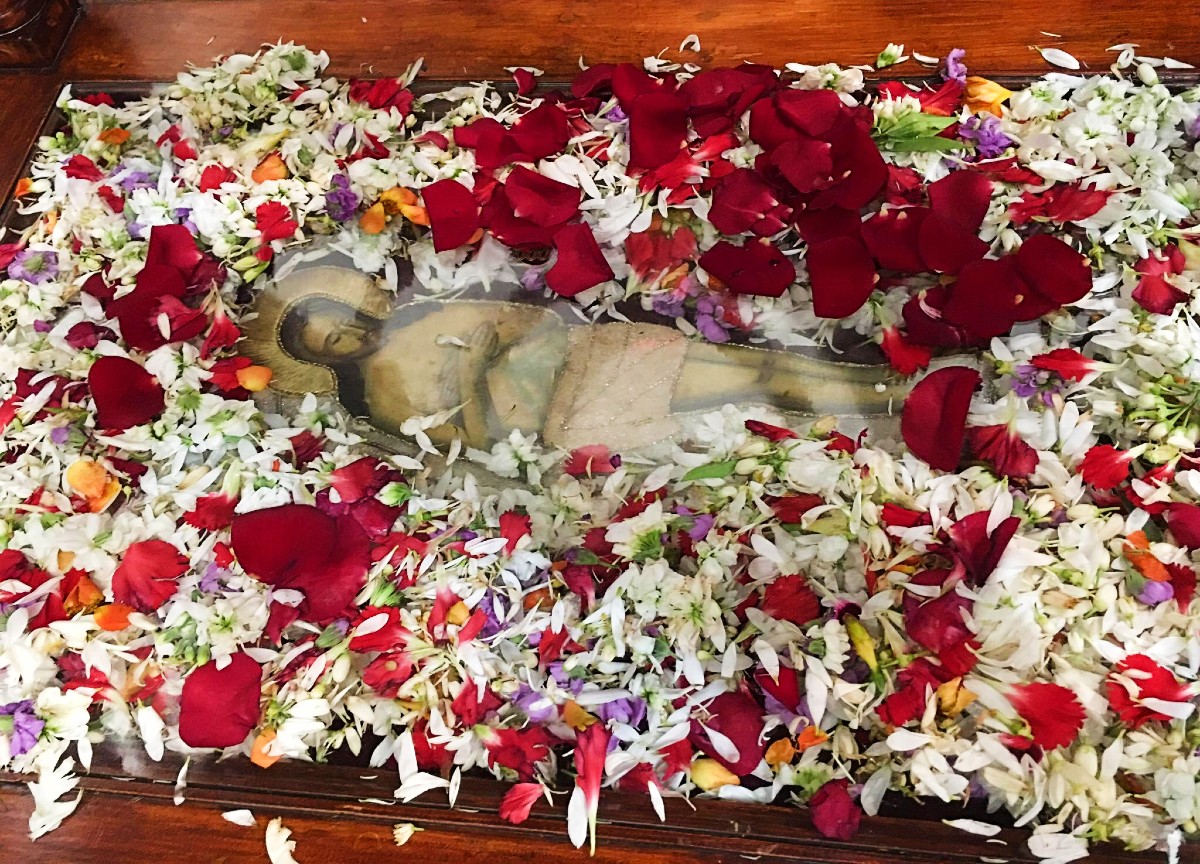
During this ceremony, the Epitafios is carried around every single town and village in Greece. People follow the procession around the neighbourhood, carrying candles. The time varies from place to place, but it’s usually around 20:00-21:00.
The procession begins and ends at the church, and it’s a uniquely solemn event. On some Greek islands, like Tinos, the Epitafios is carried into the sea, to protect the sailors and bless the water.
If you are in Athens, you can follow the Epitafios processions in Plaka. It’s absolutely worth observing this incredible religious ceremony, and it will be one of your highlights in Greece!
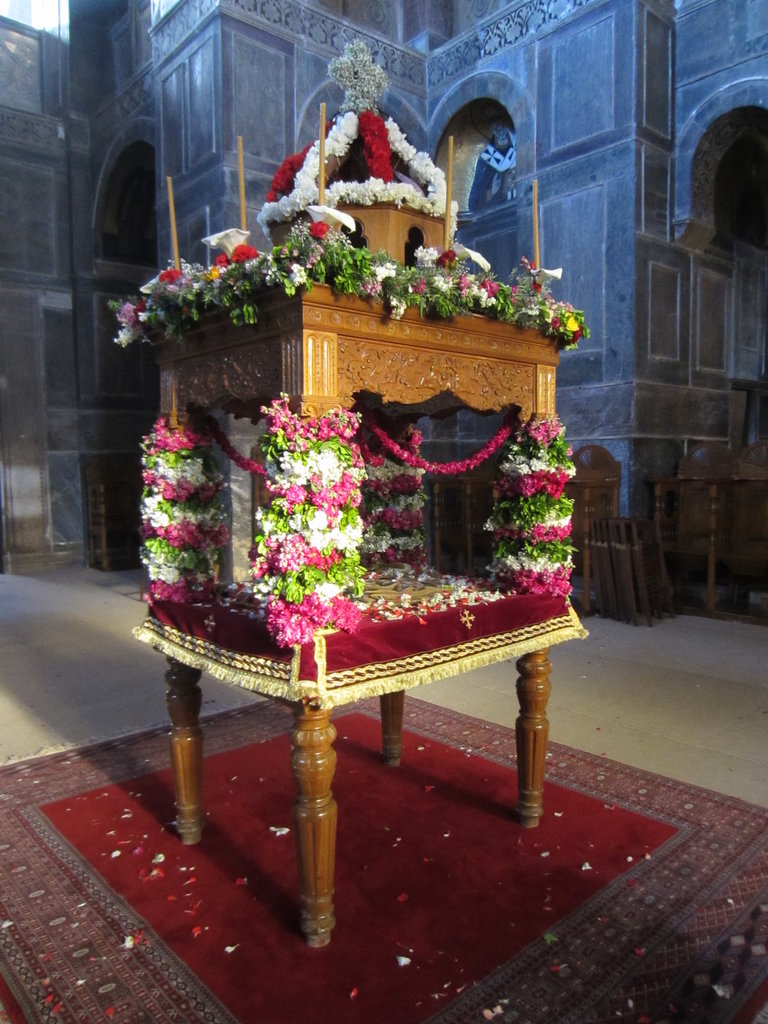
5. The Anastasi (Resurrection) on Easter Saturday
On Holy Saturday, there are various church services during the day. Late in the evening, at around 22:30 – 23:00, people gather outside the church in expectation of the Resurrection of Jesus Christ, which we call Anastasi in Greek.
The Holy Light, which signifies the Resurrection, arrives from Jerusalem. Exactly at midnight, the flame quickly spreads among the crowd as everyone in the congregation lights their candle.
People kiss each other on the cheek, repeating the phrases “Christos Anesti” (Jesus has risen) and “Alithos Anesti” (He has truly risen).
This is a solemn event, but it’s now one of joy, and is accompanied by loud chiming bells and plenty of fireworks and firecrackers.
Then everyone returns home, holding their lit candles. It is customary to make a cross out of candle smoke on the ceiling, just above the entrance door. This symbolizes the fact that Christ is risen from the dead.
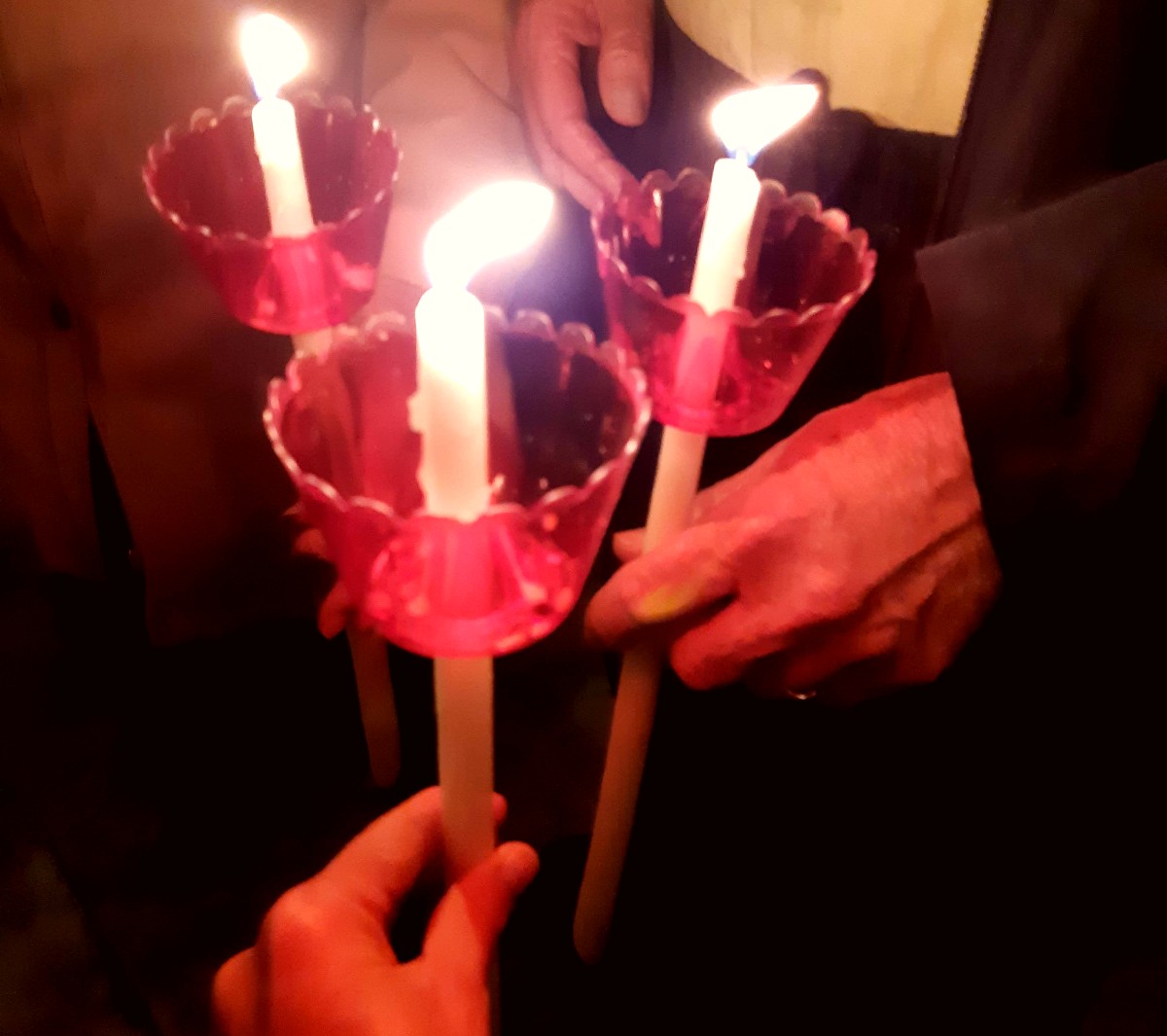
6. Cracking the red eggs
As everyone returns home after the Anastasi, it’s time for some fun! The family sits around the table, and everyone gets ready to crack the red eggs into each other.
Everyone picks a couple of eggs, trying to find the ones that look best for the cracking game.
One person holds their egg in their hand, and the other person tries to break the egg saying the phrase “Christos Anesti”. The response is “Alithos Anesti”. Sometimes both eggs might break!
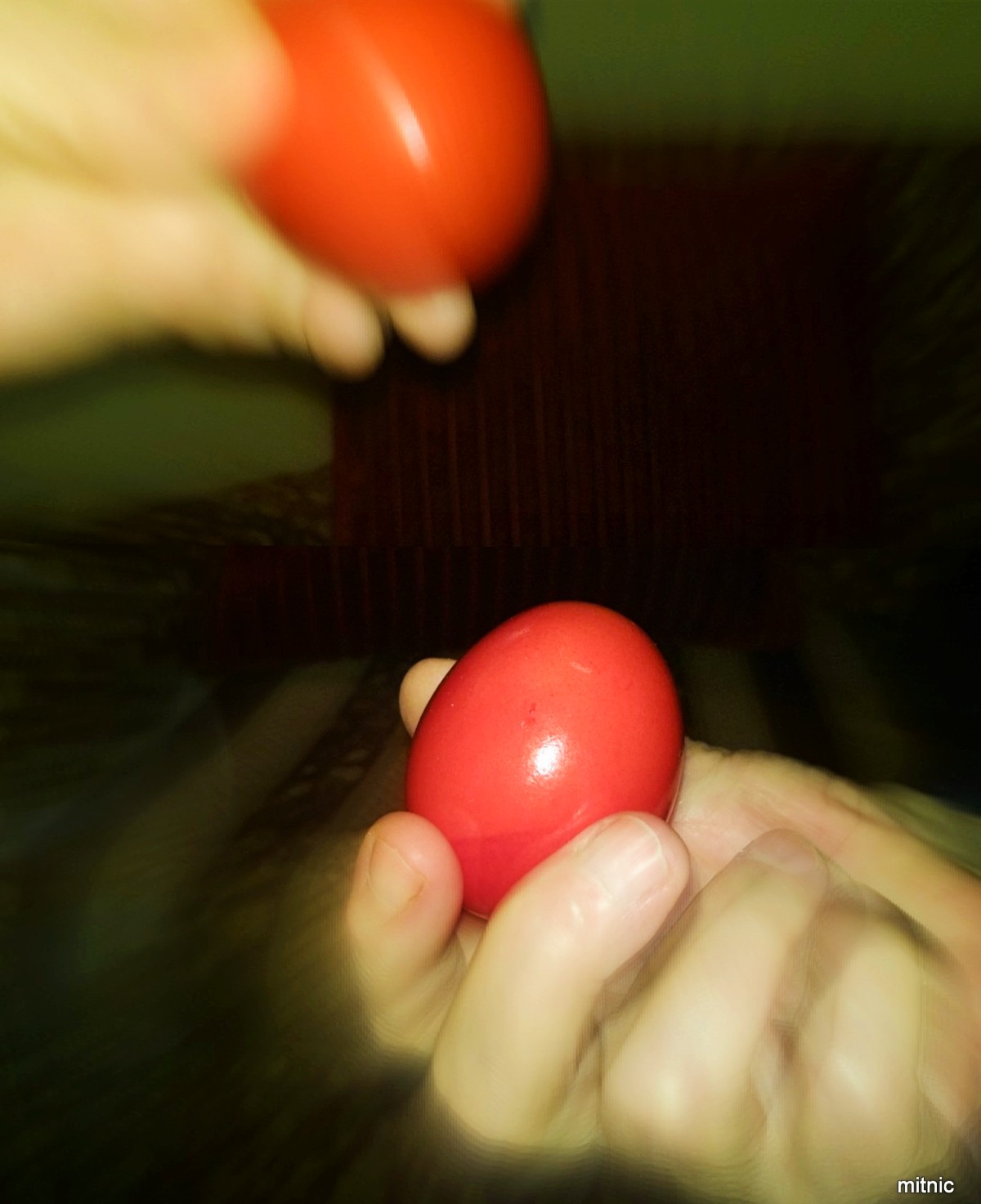
Everyone gets to crack a number of eggs with other people. The person who is left with the only uncracked egg is the winner, and will have good luck for the next year to come. In the end, everyone gets to eat their eggs.
Cracking the eggs is symbolic of the Resurrection of Jesus, and the eternal life.
Apart from the Easter eggs, it is possible to find chocolate eggs in Greece during Greek Orthodox Easter. However, there is no custom to hide them around the garden, like in some other countries.
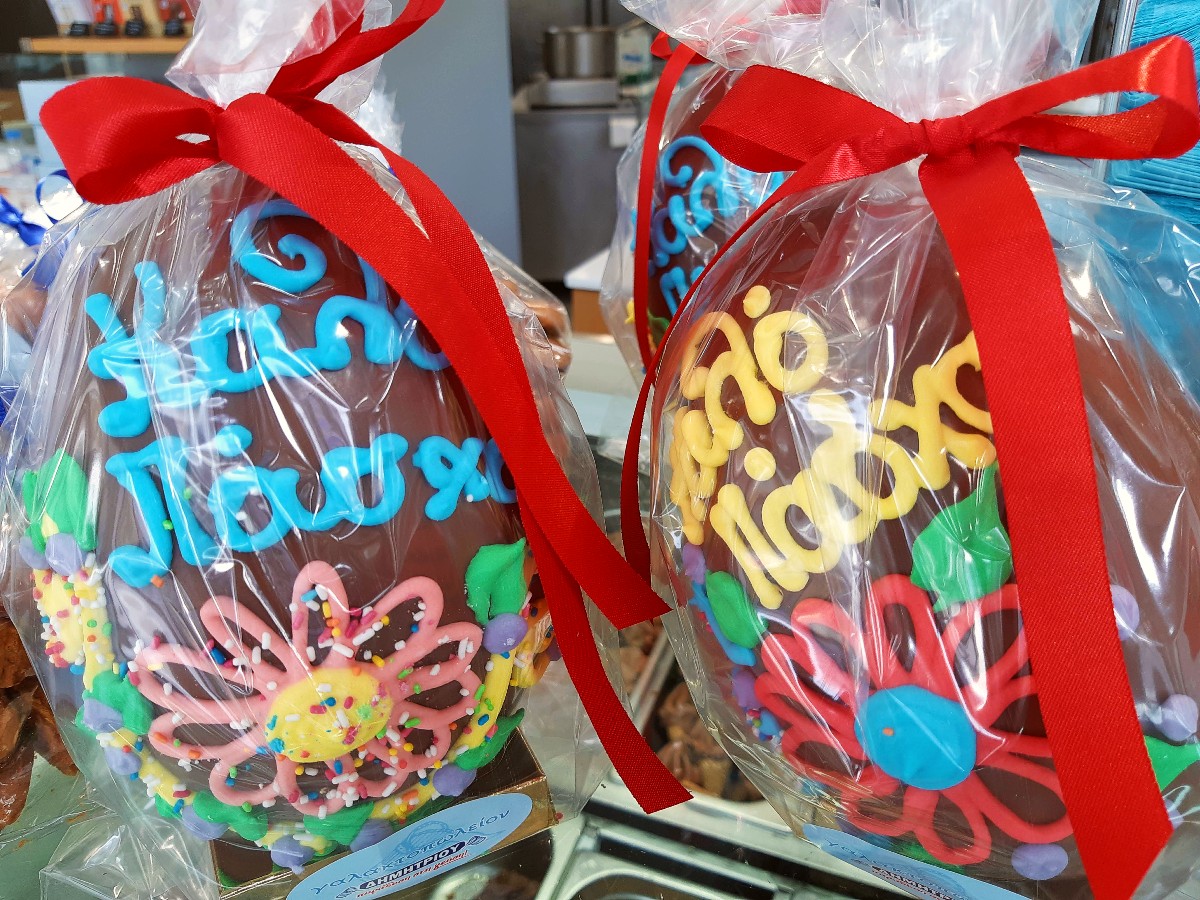
7. Eating the mayiritsa Easter soup
After eating the eggs, Greeks have the traditional after midnight meal, which we call magiritsa or mayiritsa.
This is a special soup containing goat or lamb intestines, kidneys and other inside parts. It also contains rice, herbs and lots of lemon, to balance the strong flavor and take some of the meatiness away.
Magiritsa is a heavy, filling soup, that won’t appeal to everyone. Its consumption signifies the end of the fasting period, and it’s only prepared for this special occasion. And for anyone who has fasted for the full Lent, it’s a truly festive dinner.

8. What to do on Easter Sunday: Feast on goat or lamb
Meat lovers, rejoice! After the long period of Lent, it’s time for Greeks to go back to one of the country’s favourite foods – meat.
Greek Easter food is intrinsically tied to feasting on lamb and goat on the spit. This is prepared on Easter Sunday everywhere around Greece. Many towns and villages have designated areas where people cook several lambs and goats, for many hours.

The procedure begins early in the morning and continues until late in the evening. Apart from roasted lamb or goat, you can usually find kokoretsi and gardoumpes, meat delicacies made with the various lamb and goat entrails.
A proper Easter table also has potatoes, salads, various pies and the red Easter eggs. Not to mention wine, beer, and more Greek drinks. This is a good chance to listen to some traditional Greek folk music and try some dancing!
In some areas of Greece, Easter might tie in with the celebrations of St George’s day and go on for two or three days. One of these places is Arachova village, close to the Archaeological site of Delphi.
If you happen to be there, you’ll have a total blast! I promise that you will remember this Easter Sunday feast forever!
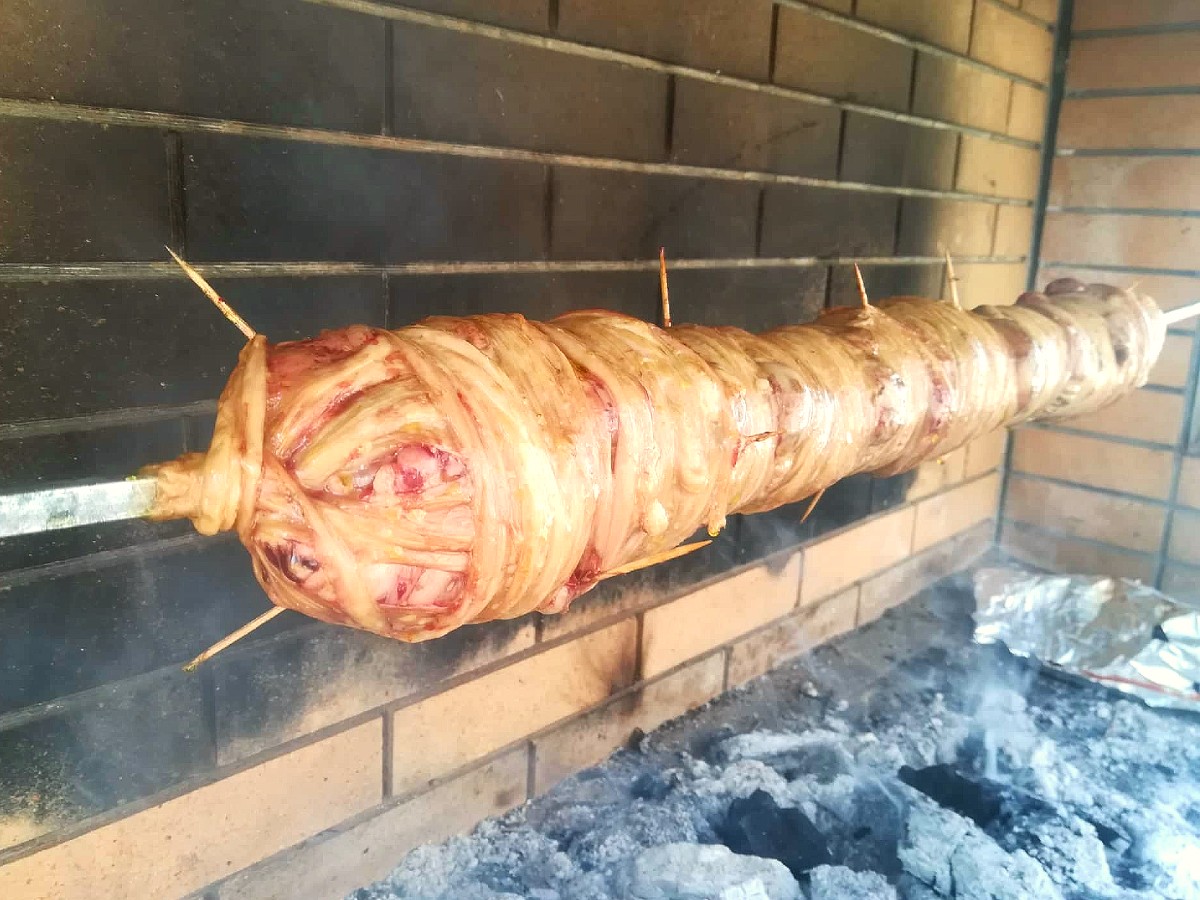
Where to Celebrate Greek Easter
The best places to go for Greek Easter are outside the main cities. If you can visit a smaller town, a village or one of the Greek islands, you will experience a very traditional Greek Easter.
Check out destinations like Patmos, Corfu, Andros, Chios, Syros, Hydra, Kalamata, Olympos Karpathos and Meteora. They all have very unique Greek Easter traditions, and you are likely to remember them for years!
Moreover, spring is one of the best times of year to visit Greece. The weather is pleasant, and tourist numbers are still low. It might still be too cold to swim for some people, but you will be rewarded with lovely nature and flowers everywhere.
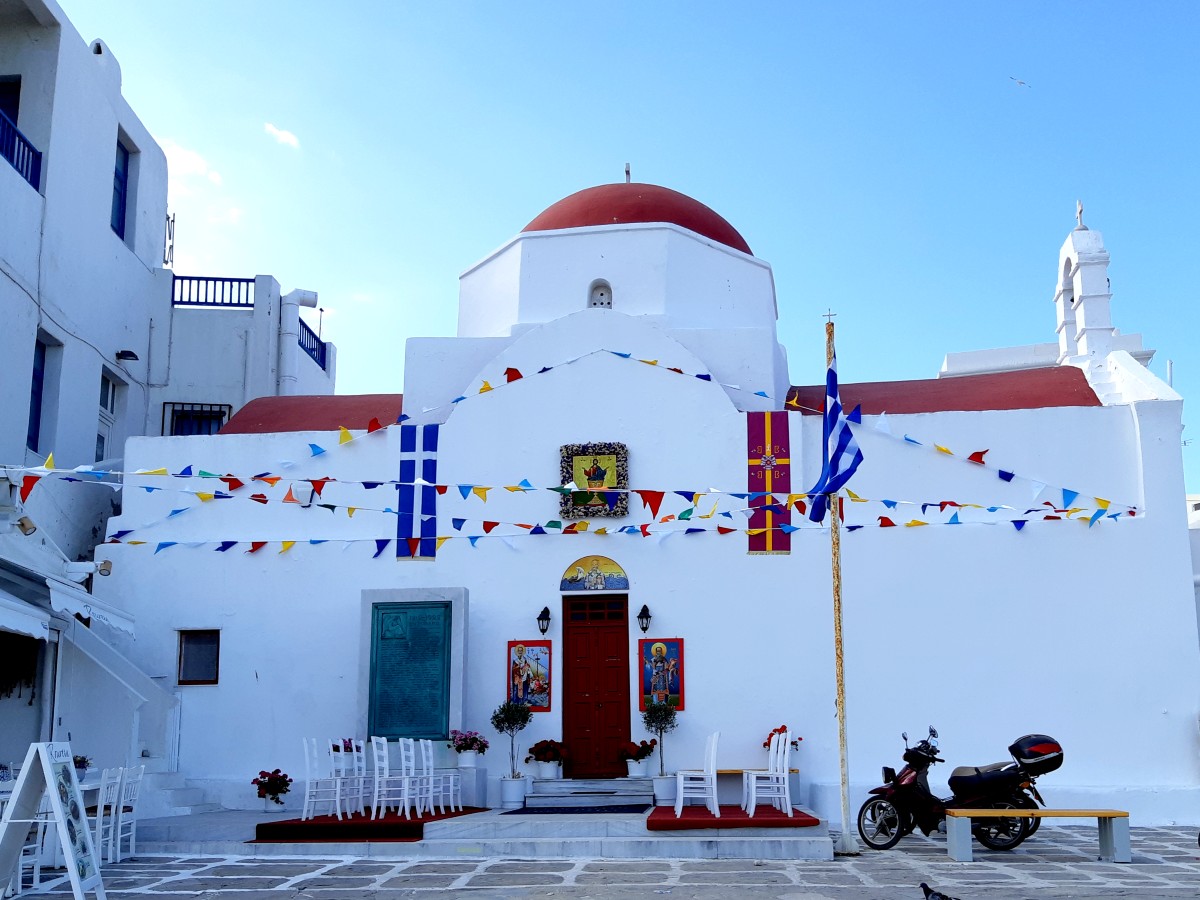
Celebrating Easter in Athens
If you have a choice, it’s better to spend Easter in the rural areas, which is exactly what many Athenians do – they go to celebrate in their hometowns and villages. However, if you are in Athens for Easter, you will always find things to do.
On Good Friday, you can stroll around Plaka, and attend the Epitafios evening church service. You will notice the sad chime of the church bells, mourning for the death of Jesus.
There are evening masses in all churches, followed by the Epitafios processions, which usually begin after 20:00 – 20:30.
On Good Saturday, at around 23:00 or so, visit one of the churches in central Athens to celebrate the resurrection of Christ. Be prepared for the hundreds of fireworks at midnight – if you have young kids, they might get scared.
Easter Sunday is a public holiday, and all stores and tourist attractions remain closed. Therefore, you can just follow the unique Greek Easter traditions. Get together with a few friends, eat lamb and drink wine like there’s no tomorrow!
Apart from just chilling out in Athens, this is also a good day to jump on the hop-on-hop-off bus, or take a full-day cruise to three Greek islands.

Opening hours during the Easter week
Opening hours for stores, museum and ancient sites are irregular during the Holy week.
In Athens, stores are open as follows:
Holy Monday: 09:00 – 21:00
Holy Tuesday: 09:00 – 21:00
Holy Wednesday: 09:00 – 21:00
Holy Thursday: 09:00 – 21:00
Holy Friday: 12:00 – 17:00
Holy Saturday: 08:30 – 15:30
Easter Sunday: Stores remain closed
Easter Monday: Stores remain closed
Similarly, ancient sites and museums have shorter opening hours on Good Friday and Good Saturday, and remain closed on Easter Day. Check each attraction’s individual website for their opening hours.
Finally, while some restaurants may be closed, you will find that there are more than enough places to eat in central Athens. If you like meat, you should make an effort to try all the special dishes of the day!
How to say Happy Easter in Greek
“Happy Easter” is a fairly easy couple of words in Greek – Kalo Pascha!
However, the egg-cracking phrases, Christos Anesti and Alithos Anesti, are used more often. Try to memorize them, as you will be greeted with smiles, and maybe some treats.
Another phrase that you will hear often before Saturday night, is Kali Anastasi, which literally translates to “Good Resurrection”. These days, it is used as a way of wishing people to enjoy themselves.
Interested in learning more Greek phrases? Take a look here for the Greek alphabet and some useful words and phrases when visiting Greece.

2026 – Greek Easter and Christian Orthodox Calendar
Have you ever wondered why Greek Orthodox Easter is usually celebrated after the Catholic / Protestant Easter? This happens because the Orthodox Church uses the Greek Orthodox calendar, which is based on the Julian calendar.
The Catholic and Protestant Churches follow the Gregorian calendar. This was introduced by Pope Gregory XIII in 1582, and replaced the Julian calendar.
The calculation of the exact date of the Greek Orthodox Easter is a little complicated, and it is related to Passover, the spring equinox, and the full moon. You can find a long explanation here.
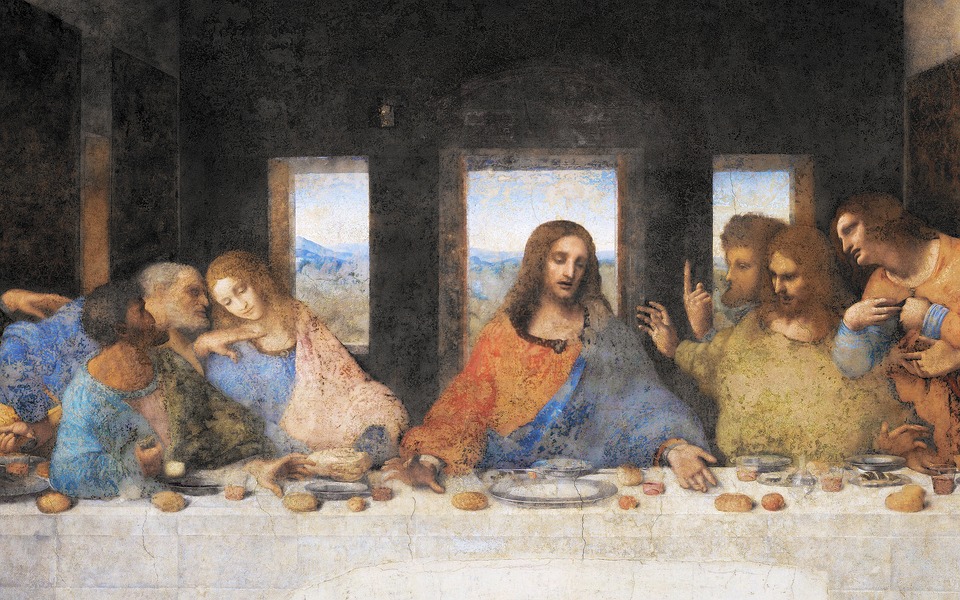
So, although Christmas is celebrated on the same day in all Christian countries, Easter is not.
If you are planning a trip to Greece in spring, and you are coming from Europe, the United States or Australia, make sure you check the Orthodox Christian Calendar first.
On some years, Eastern and Western Easter fall on the same date. If you are visiting then, you will need to book your flights or ferries very well in advance, as many Greeks travel on those dates.

FAQs about Easter in Greece
Here are a few questions visitors often ask:
Is Greek Easter the same as Orthodox Easter?
People use the terms Greek Easter, Orthodox Easter and Greek Orthodox Easter interchangeably. In Greek, this religious day is known as Agio Pascha, which means Holy Easter.
What is the significance of Easter in Greece?
Easter is the most important religious celebration in Greece. It commemorates Jesus Christs’ agony, death and resurrection. As it’s always in spring, it is also a symbol of rebirth and renewal.
Why is Easter a different date in Greece?
Orthodox churches around Europe follow the Julian calendar, which was launched in 45 BC. The Protestant and Catholic churches follow the Gregorian calendar, which replaced the Julian calendar in 1582.
What do Greeks eat on Greek Easter?
Greeks prepare special dishes for Easter Day. Among others, you will find grilled lamb or goat on the spit, and hard boiled eggs which have been dyed red. There are other meat based recipes, such as kokoretsi, goat intestines wrapped around offal.
Why do Greek Orthodox crack eggs at Easter?
On Easter Sunday, Greeks play a traditional game of cracking red dyed eggs. The color red symbolizes the blood of Jesus Christ, and the cracking of the shell symbolizes his breakthrough resurrection from the dead.
What is the Holy Light / Holy Fire?
On the eve of Orthodox Easter, a miraculous light is said to glow from what is widely believed to be the Tomb of Christ. This is called the Holy Light in Greek, and is also known as Holy Fire. This light comes all the way from Jerusalem to Greece, and is used to light up the Easter candles after midnight, which is symbolic of Christ’s resurrection.
When is Easter 2026 Greece?
Greek Orthodox Easter 2026 is on 12 April, a week after Catholic Easter 2026 and Protestant Easter 2026. If you are an early planner, here is a table with Easter dates for the current decade.
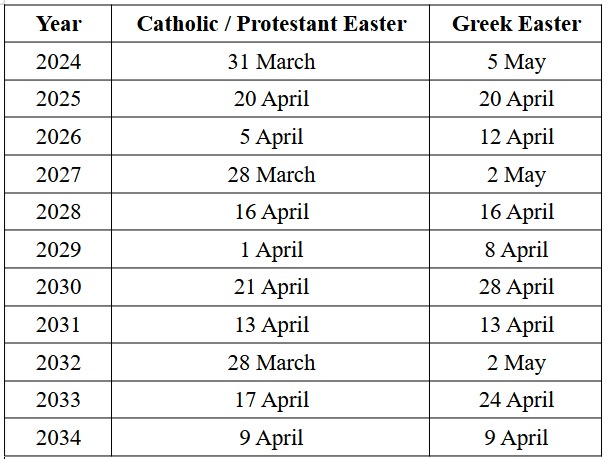
Always remember that some services will be affected on Holy Friday, Holy Saturday, Easter Sunday and Easter Monday.
You should also note that on some years, Easter happens to be close to the 1st of May, which is a strike day. There are normally public transportation strikes, including the Athens Metro and the Athens airport metro.
What is Easter called in Greek?
In Greek, Easter is called Pascha – pronounced with a very harsh H!
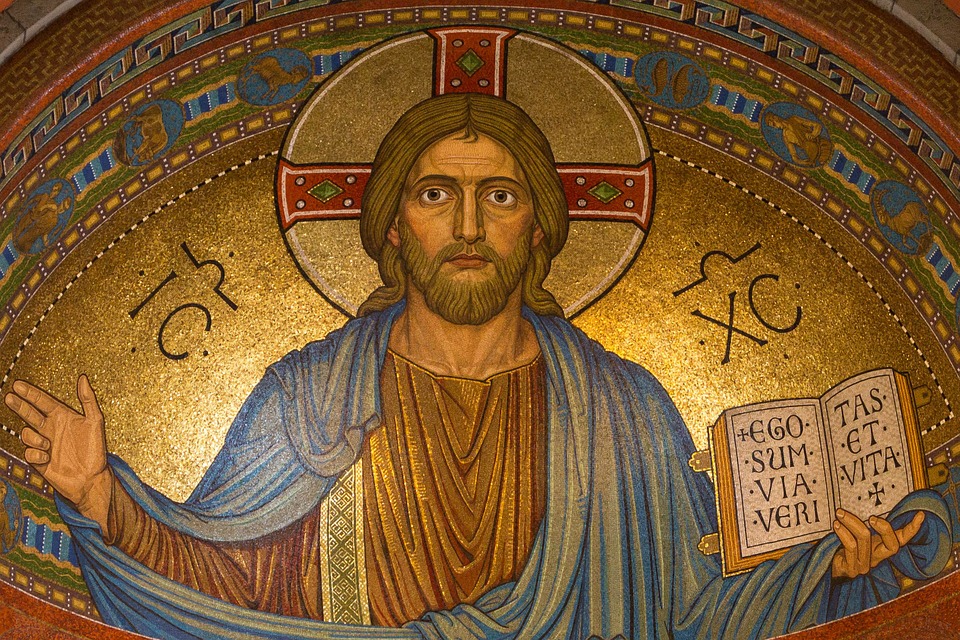
More articles about Greek culture
If you liked this article about Easter in Greece and Eastern Christian traditions, take a look at these other ones:
- Greek celebrations – Religious and cultural festivals in Greece
- Religion in Greece – Learn more about our religious traditions
- Namedays in Greece – Yes, Greeks celebrate their namedays!
- The OXI day in Greece – Why 28th October is so special in Greece!
- Movies about Greece – Much more than the Big Fat Greek Wedding!
- Quotes about Greece – To inspire your next Greek holiday!
- Best time to visit the Greek islands – Not necessarily summer!
- Little Kook Cafe Athens – Seasonally themed cafe and street area
- Best things to do on a Sunday in Athens – And why Sundays are different!

Hi! I am Vanessa from Athens, and I love helping people discover more about Greek traditions and customs. Easter is our biggest religious holiday – if you ever visit Greece and celebrate Orthodox Easter, I assure you that you’ll remember it for many years to come! Follow me on my social media:

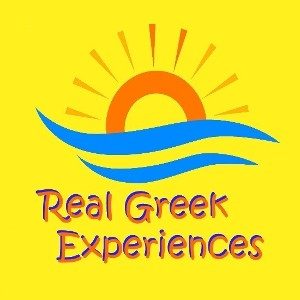
Beautiful photos,Easter means so much to me especially as I am Greek Orthodox but living in a foreign land.I just have 1 comment to make regarding the Epitafio.Where I was
born (South Africa)I have to admit the young girls adorn the Epitafio very richly with flowers,really fit for A KING,unlike the one in your bulletin.Not that it is a competition, but I believe that in the xenitia we truly have kept our strict Orthodox upbringing,if I compare Greece and Cyprus even our children are respectful towards others,unlike their Greek counterparts.
Very interesting comment! I have never been to an Epitafios procession outside Greece actually. I think the Epitafioi here in Greece vary widely. This year we haven’t seen any because of the covid-19 measures, so we’ll need to wait until next year! Happy Easter, Christos Anesti!
I am a Turkish guy living in Constantinople and as a convert to Eastern Orthodoxy, seeing these beautiful traditions in a country so similar to ours culturally makes me want to hop in a plane and travel to Greece to experience all for myself.
You definitely should, when this situation is over! I have been to Turkey a few times and, like you say, I find our religious differences fascinating, while so many other aspects of the culture are so similar!
Hello! This is incredibly helpful, thank you so much! Me and my husband will be in Naxos in the lead up to Easter and then we’re flying into Athens on Easter Sunday (24 April 2022). We’d love to go to a restaurant and join the festivities – is it likely the smaller restaurants and eateries will be open on Easter Sunday, will it be easy for us to find some great food? If you have any recommendations please let me know!!
Hi Rosie! If you are staying in the centre, you will be able to find some restaurants and tavernas that serve the special Easter food. Mavro Provato restaurant is known for their Easter meals, but not sure what they are doing this year – perhaps you can check with them if you want to book ahead? Or try Ella that is located more centrally. Enjoy!
Whoops! We are flying into Greece on Orthodox Easter, it just turned out to be the best availability for us. It’s ok if we don’t have the craziest Easter Sunday, might be jetlagged.
What do we need to know? Will taxis run from the airport or might we need to book something in advance?
Are your Easter restaurant recommendations in Athens still the same?
Thank you!
Hello! While metro / buses / taxis run on Easter Day, you might prefer to book a service in advance, maybe through this service, or this service – I believe there would be a surcharge as it’s a public holiday. In terms of restaurants these two I’ve mentioned are very well known for their good food. I haven’t seen any restaurants advertise an Easter menu yet, I’m sure there will be information closer to the time so feel free to write again!
I lived in Greece for five years near the town of Galatas, opposite the island of Poros.It is a wonderful place to experience Pascha because the lights of the candles are reflected in the water between the two. However, Lent was called Apokreas, the Epitaphios (don’t know the plural) were brought out on Thursday (everyone brought there own yellow candles) and on Good Friday all the icons and crosses in the churches were covered with black veils. The Saturday evening service usually began around 10p.m. and everyone brought a white candle. The lighting of the candles (starting with one and then two and then four, etc. ) was especially moving. As was the noise making , usually firecrackers. At one of the monasteries, where I attended an Easter service, a large board was struck with a mallet. This was to stand in for the ark. I have wonderful memories of my life there.
Yes every place has its own unique traditions – Patmos, Corfu, Chios and Folegandros are among the places I’d like to visit during Easter! Apokries is the Carnival period – I’ve never seen this word being used for Lent, very interesting!
I also lived on Poros for 10 years. I remember as you explain, the Easter traditions. Even moving back to the UK I still celebrate the Greek way!
Morning, I am bringing two friends to experience a true Easter. We will be in Monemvasia . Can you please let me have the 3- day program of the festival of Agios Geordias in Arochova this year . Thank you so much
Hi, Arachova is quite far from where you will be based! Eitherway, the feast of Agios Georgios revolves around a procession through the village on Monday (the day after Easter Sunday), you can get an idea in this video – or have a look at this article (in Greek), they have the schedule towards the bottom of the page, hopefully Google Translate will be of help!
Dear Vanessa
Thank you so much for your informative article.
Visiting Greece has been on my bucket list for years, and now, at last, I am able to visit and over Easter. How special.
My best friend at school was from Greece and we sadly lost contact.
We’ll be flying in from the UK the weekend before easter and I thought of starting in Athens then Mykonos, but would love to experience Easter on one of the smaller islands. Which one would you recommend. My itinerary is still flexible.
Thank you ever so much.
Michelle
If you are going to Mykonos, Tinos is a great place to go for Easter! I know that Folegandros is also very special during Easter, as all the people open their doors and everyone can go inside the houses, but I haven’t experienced that myself – also, getting to Folegandros from Mykonos will probably be tricky. Pyrgos village in Santorini has interesting Easter celebrations as well.